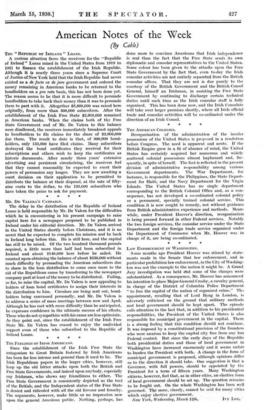LAW ENFORCEMENT IN WASHINGTON.
Same months ago President Hoover was stirred by state- ments made in the Senate that law enforcement, and in particular prohibition law enforcement, in the City of Washing- ton was not the example to the nation it might be. A Grand Jury investigation was held Eltict some of the charges were substantiated. As a consequence, Mr. Hoover has announced his intention to place Major-General Crosby, a cavalry general, in charge of the District of Columbia Police Department " to free the capital of the nation of organized crime." The appointment, recalling that of Lord Byng in London, is adversely criticized on the ground that military methods and local government should be kept apart. The episode calls attention to the fact that, in addition to his presidential responsibilities, the President of the United States is alSo responsible for municipal government in the capital. There is a strong feeling that this condition should not continue. It was imposed by a constitutional provision of the founders who were anxious to keep the capital city free from any but Federal control. But since the early days of the Republic both presidential duties and those of local government in Washington have increased enormously and it seems unfair to burden the President with both. A change in the form of municipal government is proposed, although opinions differ as to the direction it should take. One suggestion is that a Governor, with full powers, should be appointed by the President for a term of fifteen years. Many Washington citizens, however, feel that, as in other cities, an elective form of local government should be set up. The question remains to be fought out. On the whole Washington has been well governed. The same, clearly, cannot be said for many cities which enjoy elective government.
New York, Wednesday, March 12th. Ivy. LEE.




















































 Previous page
Previous page